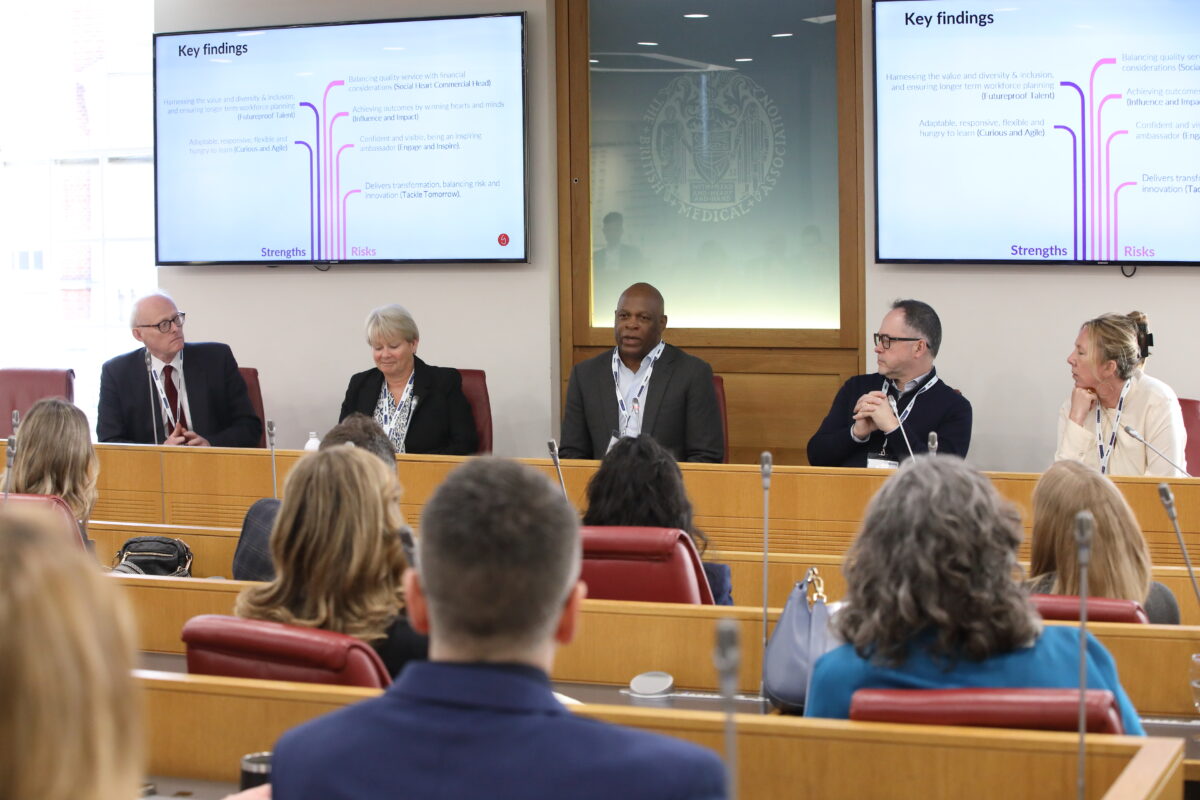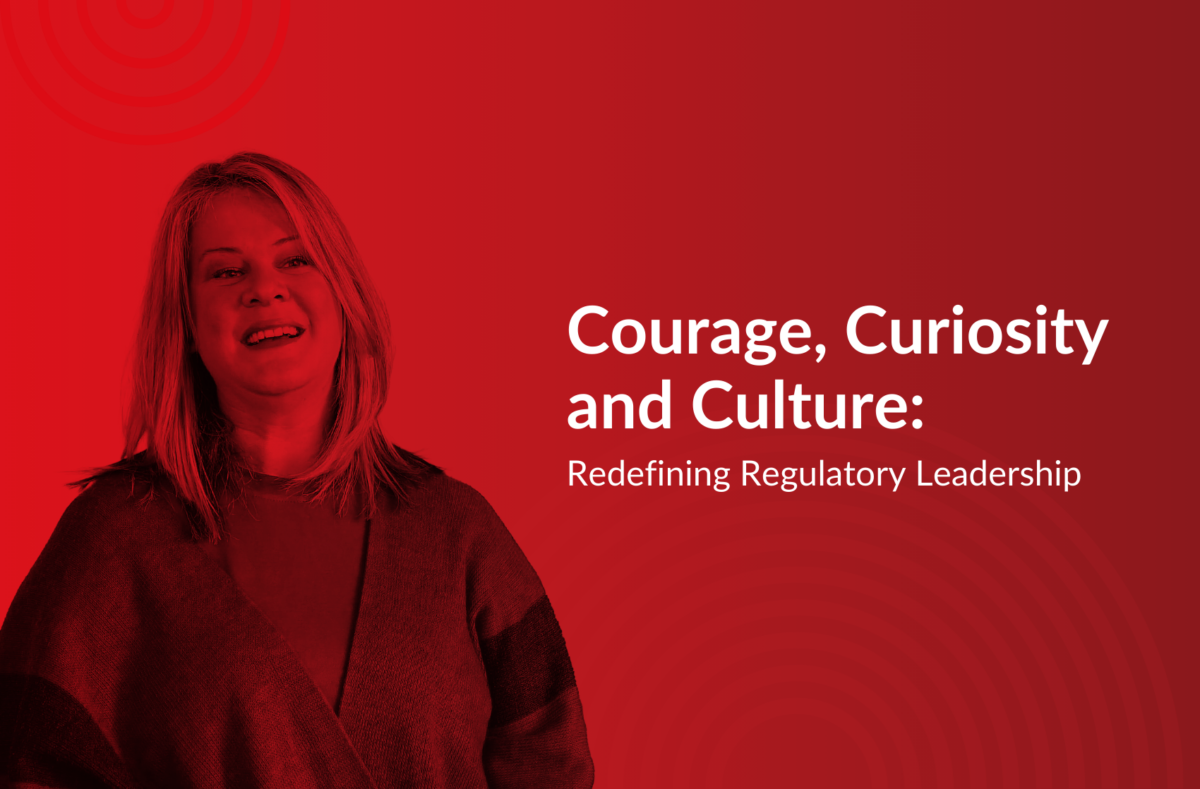The world of regulation is changing. Once anchored by levers, rules and controls, regulators today are operating in a far more dynamic, complex environment one shaped by new technologies, tighter resources, shifting political winds and heightened public scrutiny.
At a recent session hosted by GatenbySanderson at the 3rd annual Institute of Regulation conference, senior leaders gathered to explore what effective leadership looks like in this new era. Drawing on live insights and real experiences from across the regulatory landscape, the conversation painted a vivid picture of the challenges and opportunities facing the sector.
The most impactful leaders today are not just experts in policy or compliance, they are courageous, curious, and deeply committed to building cultures where people can thrive.

This session was supported with speakers including:
 Warren Buckley,
Warren Buckley,
NED Financial Ombudsman Service
and NED Ofgem
 Joe Montgomery,
Joe Montgomery,
ex Civil Service Commissioner
and member of Grenfell Tower Inquiry
 Sir Thomas Winsor
Sir Thomas Winsor
Arbitrator and Mediator
 Natalie Prosser,
Natalie Prosser,
Office for Environmental Protection
 Katrina Paget,
Katrina Paget,
Head of Regulation Practice,
GatenbySanderson
 Marie Blakesley,
Marie Blakesley,
Partner, Leadership & Talent Consultancy,
GatenbySanderson
Courage in a Culture of Caution
Risk aversion came up repeatedly as a barrier to progress. Several attendees reflected on the tendency within regulators to default to extreme caution, often at the expense of timely action.
As one participant put it:
“Do we really need to consult twice on everything?”
This isn’t about advocating recklessness. It’s about finding a healthier balance between prudence and progress. Boards and executive teams must work together to shape a clear, shared risk appetite one that empowers leaders to act, not just analyse.
As one speaker noted,
“If the Board has your back, the exec team will be braver.”
One of the most powerful takeaways? The cost of regulatory failure. From financial crises to tragedies like Grenfell, the risks of getting it wrong, or doing nothing, are profound.
“We can’t afford to sit in the land of risk aversion.”
Regulators must be enabled to act with purpose, even when the path is difficult. The role demands courage and yet, as one speaker warned,
“We undersell that when recruiting.”
Curiosity Over Credentials
Another powerful insight: the best regulatory leaders today are intellectually curious. They ask better questions. They seek out diverse perspectives. They recognise that no single person can have all the answers in such a fast-moving space.
One speaker described being particularly impressed by those who, when faced with complex problems,
“don’t retreat into expertise but open up to learning.”
This shift is also reflected in how regulators are hiring. It’s no longer just about who has the most experience in policy or enforcement. It’s about who can collaborate, communicate, and lead through change. As one contributor put it,
“You can have the best skills in the world, but if you can’t engage and inspire others, it won’t work.”
That people-first mindset starts early. A regulator who built their organisation from scratch shared how, during lockdown, they worked with their new team to co-create a sense of purpose.
The benchmark was simple:
“Everyone should be able to explain what we’re here to do, even in a lift.”
From Enforcer to Partner
Several leaders reflected on how the relationship between regulators and those they regulate is also evolving from one of opposition to one of collaboration.
“How much time do we spend arguing with those we regulate, versus working with them?”
asked one attendee.
The strongest regulators are engaging differently. They’re using complaints data as a proxy for service quality. They’re commissioning literature reviews and talking to consumers directly. Innovation, it turns out, doesn’t always mean AI or automation, it can mean listening, adapting and learning.
Leading Into the Future
Across the discussion, there was a shared sense that leadership in this space is changing. The traits that matter most aren’t just technical. They’re human.
Regulators need boldness, yes. But they also need humility. They need strategic thinkers, but also compassionate communicators. They need people who can navigate ambiguity – and still act with purpose.
Perhaps one line summed it up best:
“Think beyond the job spec. Be braver. And remember—diversity underpins everything we do.”
Author:

Sarah Luxford,
Partner
Digital, Data & Technology
Find out more about GatenbySanderson’s Digital, Data & Technology practice and Regulation practice.
For more information about us and our services, please contact our Katrina Paget, our Head of Practice via katrina.paget@gatenbysanderson.com
